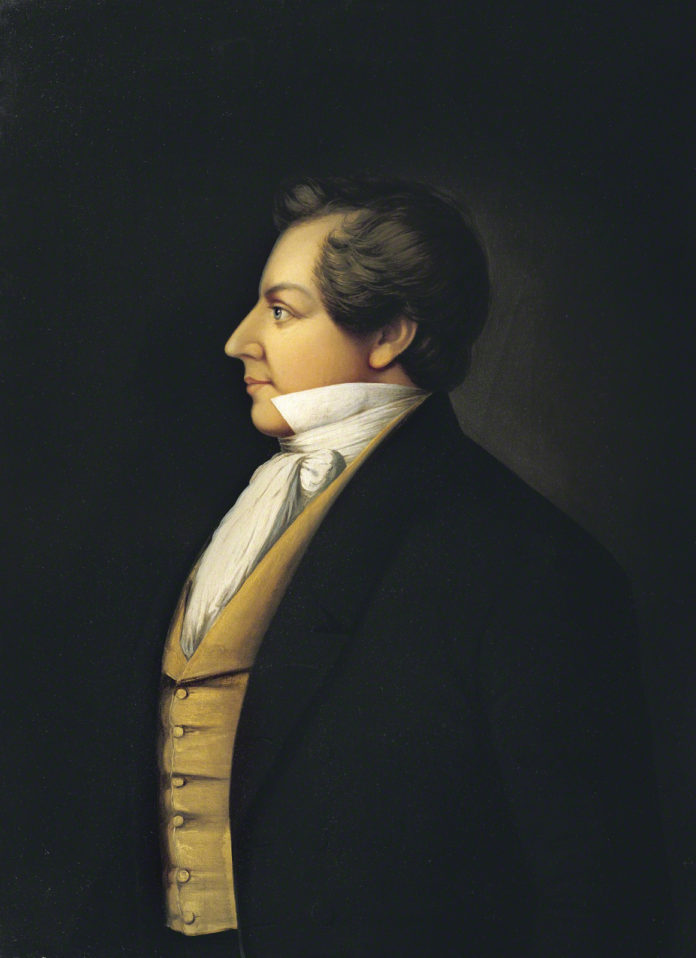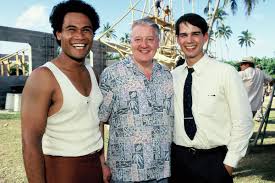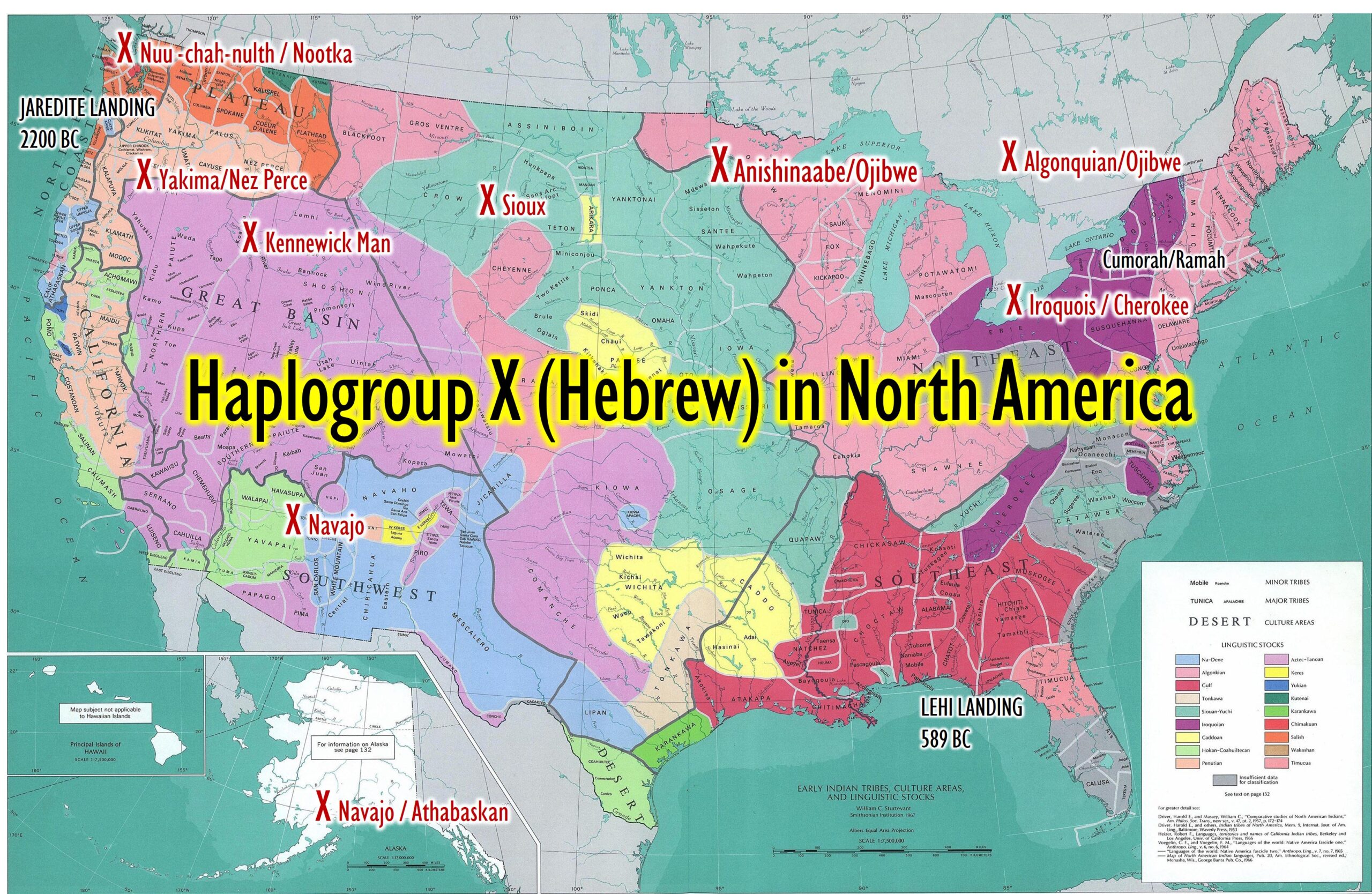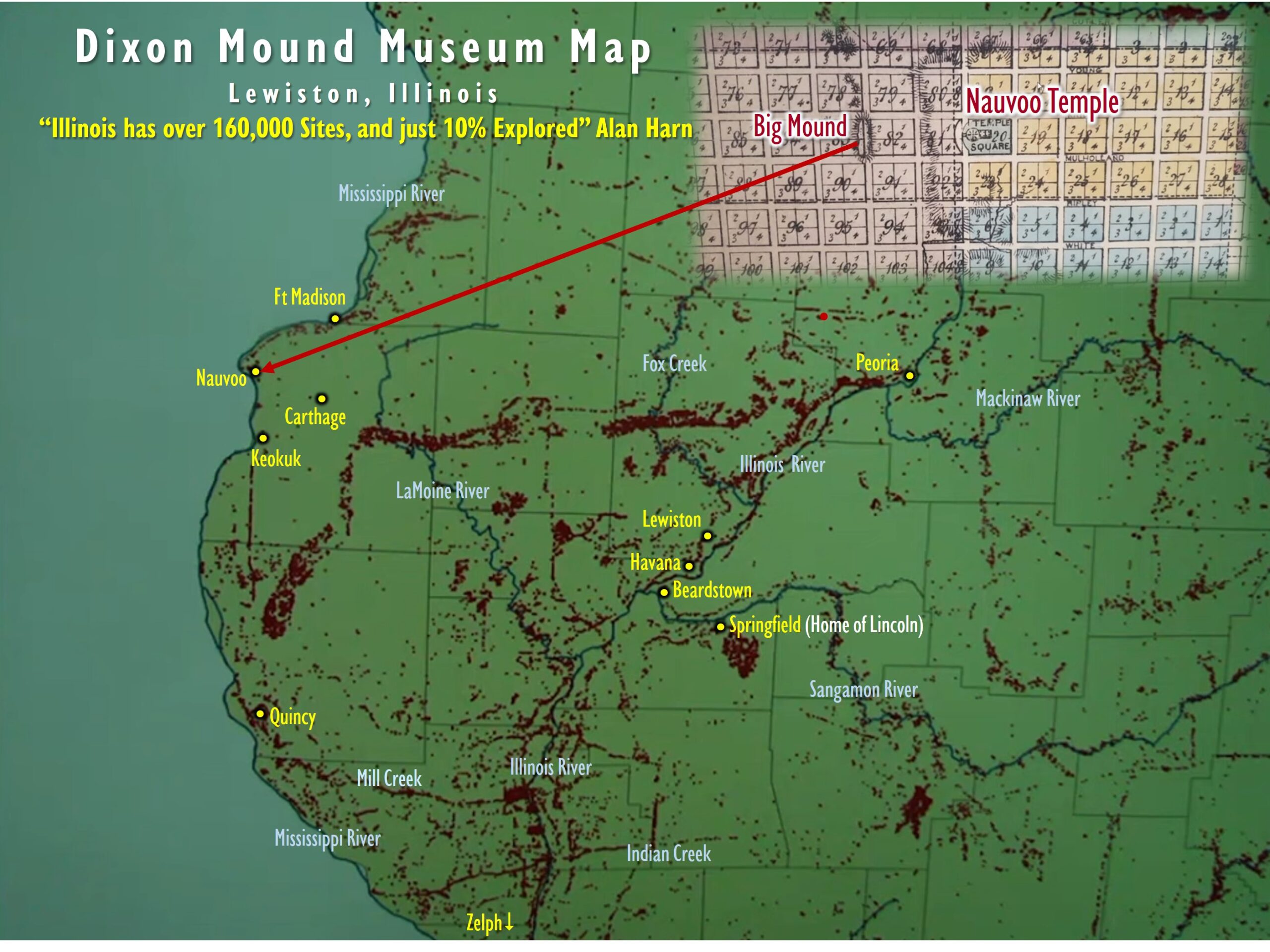Asael Smith
“It has been borne in upon my soul that one of my descendants will promulgate a work to revolutionize the world of religious faith.” Statement of Asael Smith before his grandson Joseph Smith was born (quoted in George Q. Cannon, Life of Joseph Smith, the Prophet [1986], 26).
The Prophet Joseph Smith wrote:
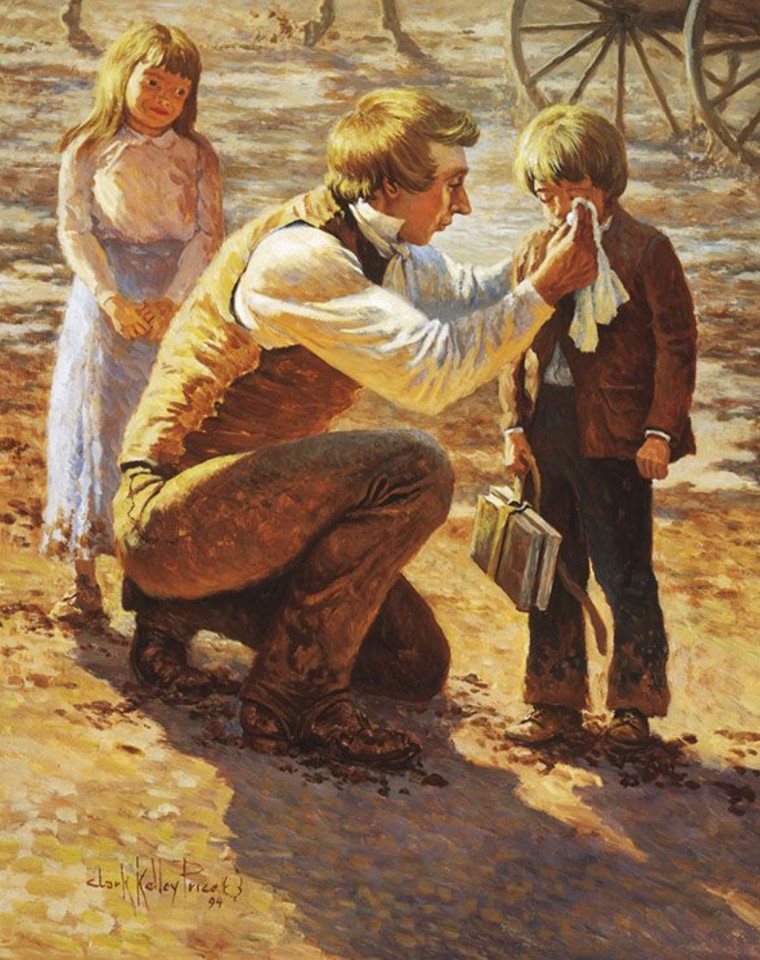
“My grandfather, Asael Smith, long ago predicted that there would be a prophet raised up in his family, and my grandmother was fully satisfied that it was fulfilled in me. My grandfather Asael died in East Stockholm, St. Lawrence county, New York, after having received the Book of Mormon, and read it nearly through; and he declared that I was the very Prophet that he had long known would come in his family” (In History of the Church, 2:443).
President Brigham Young said, “The Lord had his eye upon him, and upon his father, and upon his father’s father, and upon their progenitors clear back to Abraham, and from Abraham to the flood, from the flood to Enoch, and from Enoch to Adam. He has watched that family and that blood as it has circulated from its fountain to the birth of that man. He was foreordained in eternity to preside over this last dispensation” (in Journal of Discourses, 7:289–90).
For Good and Evil
Why is it that so many people in the world only know Joseph Smith as a fallen prophet, or a storyteller, or a money digger, or a fake, or a deceiver? It was all prophesied as you know.
Why is Joseph Smith’s name known among all nations and all people? He must be a very influential person. Think of the name of Adam, or Noah, Moses, Abraham, or Peter. They are also very important people who are known for good and evil among the entire planet. Why? Because the mission of Joseph Smith was to be the Prophet of the at Dispensation to cry a final repentance among the people of this earth’s final existence.
Joseph Smith said, “He called me by , and said unto me that he was a sent from the presence of God to me, and that his name was Moroni; that God had a work for me to do; and that my name should be had for and evil among all nations, kindreds, and tongues, or that it should be both good and evil spoken of among all people.” Joseph Smith—History 1:33.
“How could a farm boy, largely without formal education, have dared to say such a thing? And yet it has all come to pass and will continue to increase as this restored gospel is taught across the world” (President Gordon B. Hinckley in Conference Report, Apr. 1998, 4; or Ensign, May 1998, 6).

John H. Groberg
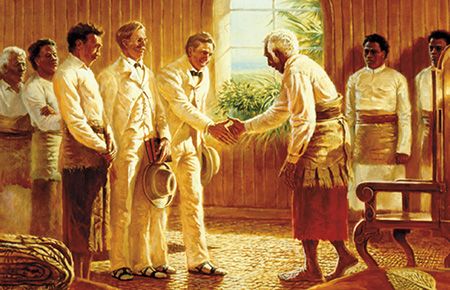 I had the opportunity to serve my Mission in the Fiji, Suva Mission from 1975 to 1977. This included service in Fiji, Kiribati, formerly known as the Gilbert Islands, and Tuvalu, formerly known as the Ellice Islands. During this incredible time amongst the Children of Israel my testimony was strengthened. I also had the privledge of meeting Elder Groberg in 1976, as he visited our small mission. I then at the end of my mission in Nov 1977 left from Kiribati. and flew to Honolulu to receive my mission release from Elder Groberg who was a Regional Representative serving in Hawaii. I love this great man, Elder Groberg.
I had the opportunity to serve my Mission in the Fiji, Suva Mission from 1975 to 1977. This included service in Fiji, Kiribati, formerly known as the Gilbert Islands, and Tuvalu, formerly known as the Ellice Islands. During this incredible time amongst the Children of Israel my testimony was strengthened. I also had the privledge of meeting Elder Groberg in 1976, as he visited our small mission. I then at the end of my mission in Nov 1977 left from Kiribati. and flew to Honolulu to receive my mission release from Elder Groberg who was a Regional Representative serving in Hawaii. I love this great man, Elder Groberg.
Testing the Prophesy
While serving a mission in Tonga [1953], Elder John H. Groberg of the Presidency of the Seventy decided to test that prophecy about the name of Joseph Smith.
“Elder Groberg and his companion sailed to the island of Tafahi, located about eight miles from their home island of Niuatoputapu. About 80 people lived on Tafahi. Like the people on Niuatoputapu, the people on Tafahi had no running water or electricity, but they were even more isolated from the outside world since they had no telegraph or scheduled boats.
When Elder Groberg visited, the island had only 18 homes, and the missionaries visited each one. He wrote: “At the last home, a strange thought occurred to me, ‘Why don’t you test the prophecy that the name of Joseph Smith should be known for good and evil throughout the world?’ I don’t know why the thought came, but it did.”
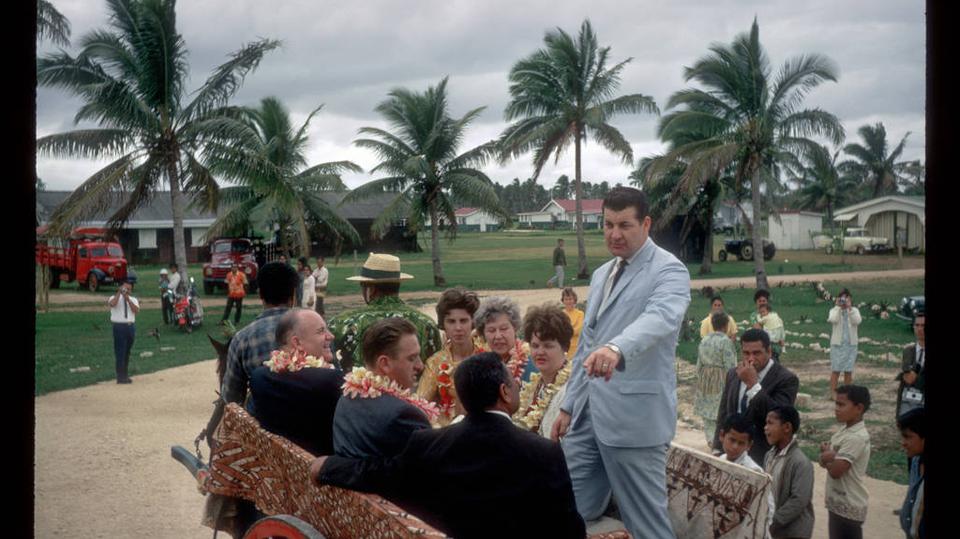 The missionaries asked the family if they had ever heard of the president of the United States. “Who’s he?” and “Where’s the United States?” was their response. Elder Groberg reported: “I tried to explain where it was, but they couldn’t understand. They asked how big an island it was. I replied that it was a very big island, thousands of miles away with millions of people living on it. I told them that many people there had never even seen the ocean and that many people didn’t know one another. They couldn’t comprehend that.”
The missionaries asked the family if they had ever heard of the president of the United States. “Who’s he?” and “Where’s the United States?” was their response. Elder Groberg reported: “I tried to explain where it was, but they couldn’t understand. They asked how big an island it was. I replied that it was a very big island, thousands of miles away with millions of people living on it. I told them that many people there had never even seen the ocean and that many people didn’t know one another. They couldn’t comprehend that.”
He then asked if they had heard of Russia and France and their leaders; he asked about movie stars, sports figures, and world political leaders. They knew nothing of these places or people, nor of world events such as the Depression and the Korean War.
Elder Groberg recalled: “There was not a member of the Church living on this island, although there were two other churches there. I took a deep breath and said, ‘Have you ever heard of Joseph Smith?’”
“Immediately their faces lit up. Everyone looked at me, and the father said, ‘Don’t talk to us about that false prophet! Not in our home! We know all about him. Our minister has told us!’ I could hardly believe what I was hearing. The scripture … sounded in my mind that Joseph’s name should be had for good and evil among all nations. … To me this was a direct fulfillment of prophecy.
“I am convinced that you could hardly get a place more remote, more out of touch with modern civilization, than the little island of Tafahi. The people there knew nothing of the great leaders of the day—political, economic, or otherwise—but they knew the name Joseph Smith. In this case they knew it for ill, at least to begin with. I spent the next few days explaining more of the mission of the Prophet Joseph Smith, and before we left, a few of them knew his name for good” (In the Eye of the Storm [1993], 104–6). https://www.churchofjesuschrist.org/study/manual/presidents-of-the-church-teacher-manual-religion-345/joseph-smith-first-president-of-the-church?lang=eng
More About Groberg
“Groberg was born in Idaho Falls, Idaho, in 1934 and was reared there after the Great Depression. After a year at Brigham Young University, and shortly after the Korean War, he served a mission to Tonga.
After much difficulty in getting to Tonga with strikes, visa problems, and problems finding boats, he served briefly in Los Angeles, Samoa, and Fiji while waiting to get to Tonga. When he finally arrived in Tonga, his first assignment was on a remote isolated island called Niuatoputapu, which with neighboring Tafahi, was a place whose contact to the outside world was an occasional telegraph and visiting boat. On this Island he suffered mosquitoes, a typhoon, and starvation. He spent nearly a year there.
He then returned to more developed islands and served as a district president supervising smaller congregations called branches. The branches he dealt with lacked unity and morality. He had little contact with his mission president. He nearly drowned when pushed out of a boat during a major storm and suffered exhaustion many times. He was denied an extension so he could take a group of Latter-day Saint converts to the Hamilton New Zealand Temple. He flew home, and shortly after married Jean Sabin; together, they have had 11 children.
Groberg received his bachelor’s degree from BYU and an MBA from Indiana University. He was then involved in real estate in the Idaho Falls area. Groberg also served for five years as a bishop of a ward in Idaho Falls.
He returned to the islands of his mission ten years later as a mission president and, since his release as mission president, has been there many times as a regional representative. He is beloved by the people of that region.
With much coaxing, he wrote a book about his mission from his memoirs called In the Eye of the Storm. His missionary experiences in Tonga became the subject of the film The Other Side of Heaven (released by Disney, 2001) and the sequel The Other Side of Heaven 2 (2018).
In April 1976, Groberg was called to be a general authority of the Church of Jesus Christ. The changes he saw in Tonga from a missionary to church leader were documented in his book The Fire of Faith. He had other assignments besides Tonga as a general authority.” https://www.mormonwiki.com/John_H._Groberg

